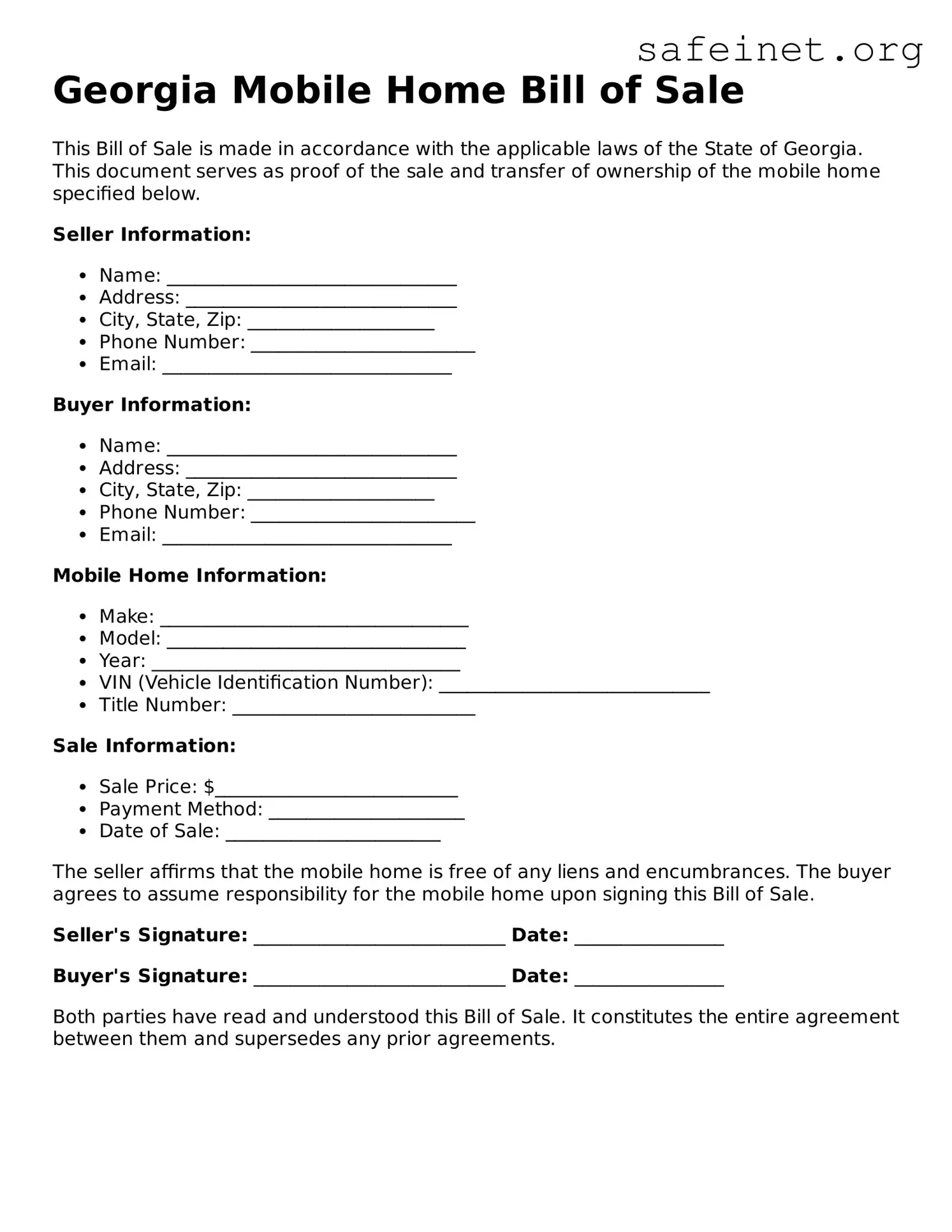What is a Georgia Mobile Home Bill of Sale?
A Georgia Mobile Home Bill of Sale is a legal document that serves as proof of the transfer of ownership of a mobile home from one individual to another. This form details important information such as the buyer and seller’s names and addresses, the mobile home's description, and the sale price. It's essential for both the buyer and seller to have this document for record-keeping and potential future transactions.
Why do I need a Mobile Home Bill of Sale in Georgia?
This document provides a clear record of the sale, protecting both the buyer and the seller. In Georgia, having a Mobile Home Bill of Sale is necessary for registering the mobile home with the county and ensures that both parties are protected in case of disputes regarding ownership or sale. It can also be useful for tax purposes and other legal situations that may arise in the future.
What information should be included in the Bill of Sale?
Your Bill of Sale should contain several key details. These include the names and addresses of both the buyer and seller, the mobile home's make, model, and year, its serial number, any unique identifiers, and the sale price. Additionally, both parties should sign and date the document to confirm the transaction. This information creates a complete record of the sale.
Is the Mobile Home Bill of Sale legally binding?
Yes, once signed by both parties, the Mobile Home Bill of Sale is a legally binding contract. It indicates that the seller has agreed to transfer ownership of the mobile home, and the buyer has agreed to purchase it under the stated terms. While the form itself is simple, it holds legal weight, so it is important to complete it accurately and carefully.
Do I need to have the Bill of Sale notarized?
In Georgia, it is not required to notarize a Mobile Home Bill of Sale for it to be valid. However, notarization can add an extra layer of protection for both parties. By having the document notarized, you are confirming the identities of those signing it and ensuring that the transaction was conducted fairly. It may also help if you need to present the document to authorities or financial institutions in the future.
